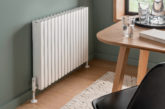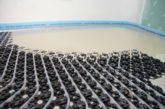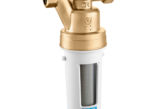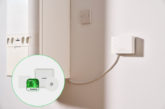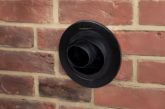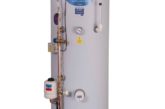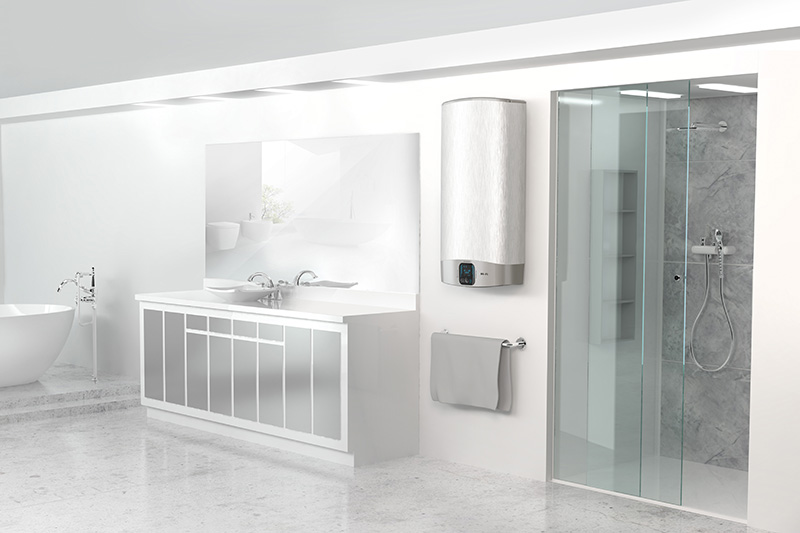
As electric water heaters become more frequently installed throughout a variety of applications, it is important to utilise units that maximise performance and reliability. Victoria Gutierrez, Head of Marketing at Ariston, looks at how the materials used to construct modern electric water heaters have a key role to play in ensuring longevity.
The market for small unvented and vented electric water heaters is particularly buoyant, having experienced steady growth over the last five years, thanks to positive influences such as raised awareness of energy efficiency. However, in order to ensure water heaters last and operate for as long as possible, it is imperative they remain resistant to corrosion.
There are many factors responsible for corrosion, with one of the major variables being the quality of the water in the unit itself. Indeed, levels of water hardness vary across the UK, with areas such as the south-west and north-west of England, as well as west Wales and Scotland, considered to be soft water areas, with water then hardening in eastern regions.
Hard times
Why is this a factor? Well, any reactions between the material a water heater is made from and the water flowing through it will vary, depending upon the level of mineral deposits present in the liquid inside. Hard water is full of dissolved mineral ions, principally calcium and magnesium, which aids conductivity. However, high temperatures inside a water heater can cause these minerals to build up on the inside of the tank – becoming what is commonly known as limescale.
Limescale has a negative effect, as it typically prevents heat from escaping naturally from a tank, causing high pressure and overheating. Limescale deposits can also work their way inside valves and connections, causing blockages, pressure problems and leakages.
Another line of defence against corrosion are anodes, which are either sacrificial or electrical. Sacrificial anodes are usually made from magnesium, as this is a more reactive material than steel; once this is in the water, it becomes the ‘target’ for any oxidisation, protecting the rest of the unit in the process. These anodes are particularly effective in hard water areas, as the higher level of mineral ions in the water ensure greater levels of conductivity.
However, as the term ‘sacrificial anode’ suggests, these components need to be replaced regularly – usually every one or two years – so it is important to check a water heater offers good access to them for easy maintenance. That is why compact units such as Ariston’s Andris Lux utilise a robust four-bolt flange to ensure replacement of the sacrificial anode is simple and straightforward. This is certainly something to bear in mind when specifying or installing an electric water heater.
When it comes to soft water, there are lower levels of electrical conductivity, so it does not react in the same way. As a result, either a powered anode is used (with an electrical supply running through it to inject a low current into the water) to create the same protective effect. These particular anodes are made from titanium, rather than magnesium.
Corrosion protection
Titanium offers exceptional longevity when compared to nickel alloy and copper alternatives. Indeed, the material offers such a high level of protection against scale and corrosion, it is also now being utilised to line the insides of the latest electric water heaters. Titanium (and titanium alloys) are perfect for corrosion protection, because they offer a high level of chemical resistance, due to a dense, self-sealing oxide layer. This is particularly useful for preventing limescale from building up inside a unit, as alluded to earlier.
Electric water heaters such as Ariston’s own Velis Evo range benefit from titanium lined tanks and magnesium anodes, ensuring exceptional durability and an extended lifecycle. Furthermore, titanium enamelling is both acid and alkali resistant, as well as exceptionally strong, making it ideal for water storage products – in either soft or hard water environments.
So, while the market for electric water heaters remains buoyant, there are many factors to consider when selecting a specific unit, especially with new products becoming available on a regular basis. It is important to select models that are well constructed and made from quality materials, as well as built to last.
Given the varying levels of water quality throughout the country, water heaters should be chosen safe in the knowledge they will be resistant to corrosion, ensuring a long-lasting and energy-efficient lifespan.
Click the link below for the chance to win an Ariston Velis Evo Wi-Fi electric water heater!
COMPETITION: Win an Ariston Velis Evo Wi-Fi electric water heater



